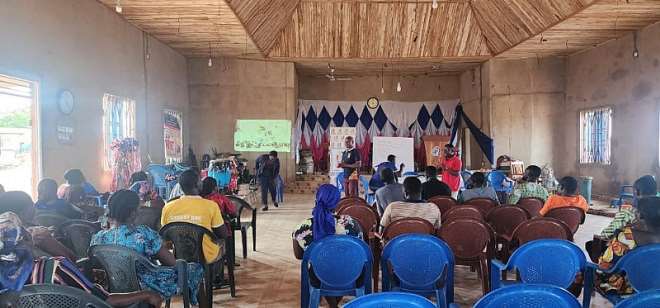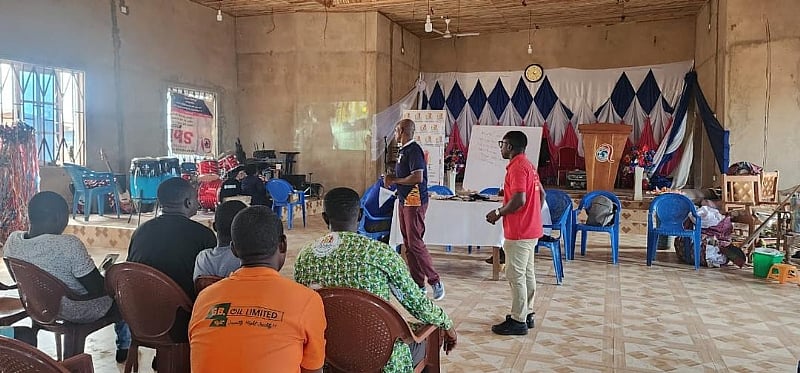The National Commission for Civic Education (NCCE) has issued a strong warning against the increasing rate of drug and substance abuse among young people, describing it as a major threat to Ghana’s future development.
Speaking at a youth empowerment outreach in the Upper Manya Krobo District, Mr. Eric K. Yanney, the NCCE District Director, underscored the urgent need to tackle the growing menace, noting that substance abuse undermines the academic, social, and mental well-being of the youth.
“People, especially the youth, who persistently abuse substances often experience an array of problems, including academic difficulties, health-related problems including mental health, poor peer relationships, and involvement with the juvenile justice system,” he said.
He explained that substance abuse increases the risk of school absenteeism and early dropout—issues that weaken the nation’s human capital and slow its progress.
“Absenteeism from school and other activities and increased potential for dropping out of school are problems associated with adolescent substance abuse,” Mr. Yanney emphasized.
The programme formed part of a larger NCCE Eastern Regional Directorate campaign to use civic education as a tool to combat drug abuse among youth. Community engagements were held in Akateng and Timersu, where officers met with young people to raise awareness and share practical strategies to avoid substance use.
Mr. Yanney warned that youth who misuse drugs face a higher risk of premature death through suicide, homicide, accident, or disease. He blamed mass media and peer pressure for pushing vulnerable youth toward drugs, stressing that society must act now to protect them.
He noted that substance abuse “decreases a person’s productivity and challenges the community’s sense of security, love and peace,” adding that its health consequences are not just individual but societal.
He also spoke about the broader implications, saying drug abuse has “huge effects both on the economy and the society at large, as it affects work, employment and productivity.”
The outreach featured a screening of the documentary “Hooked on Red: Inside Ghana’s Hidden Drug Epidemic”, which revealed the extent of addiction among youth in the country. The film served as a powerful visual aid during discussions with students and community members.
A physician assistant from the Akateng Health Centre, who also addressed the youth, warned that drug use often pushes young people into criminal activities. “Those needing money to feed their drug habit may turn to theft, robbery and prostitution,” he said.
Mr. Yanney reaffirmed the NCCE’s commitment to intensifying public education on substance abuse and promoting healthy, drug-free lifestyles among young people.
He concluded that by raising awareness and fostering community responsibility, the NCCE hopes to secure a better, safer future for Ghana’s next generation.



